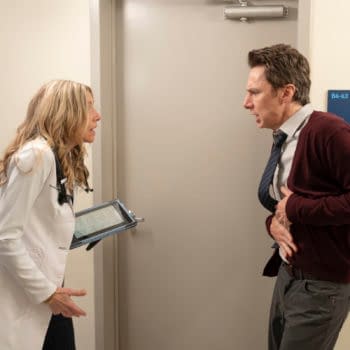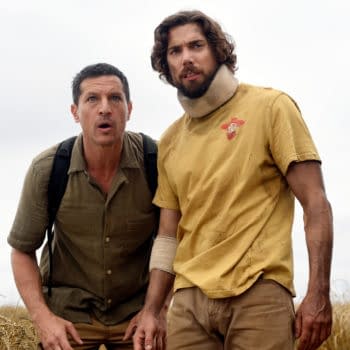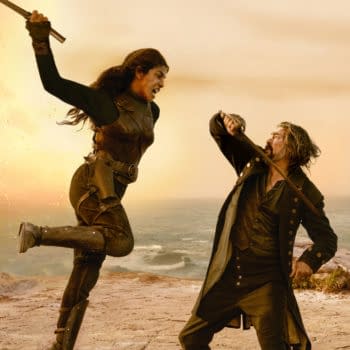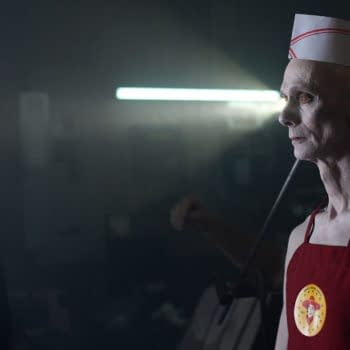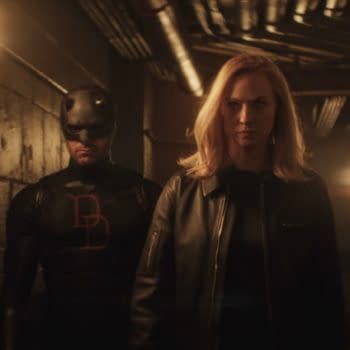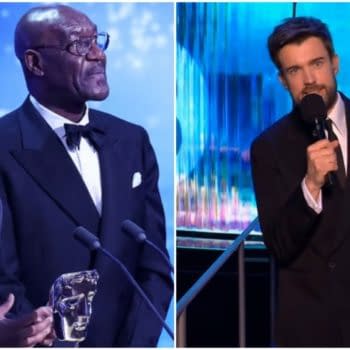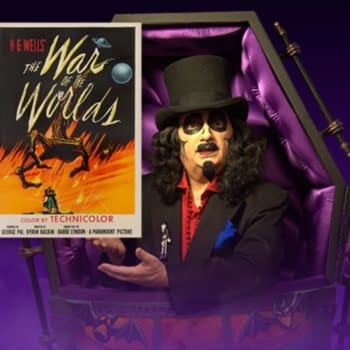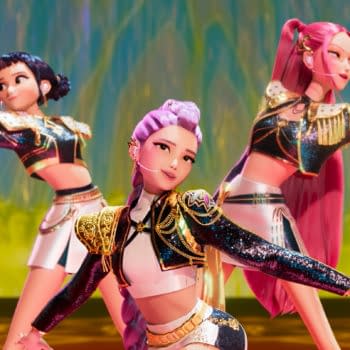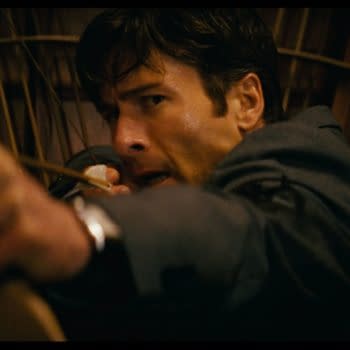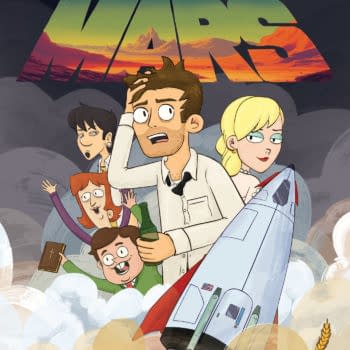Posted in: Exclusive, Interview, Movies | Tagged: emma thompson, exclusive, interview, lily james, Shabana Azmi, Shazad Latif, Shekhar Kapur, Shout! Factory, SHOUT! Studios, What's Love Got to Do With It
What's Love Got to Do with It? Director on Breaking Rom-Com Formula
Shekar Kapur (Elizabeth) talks to Bleeding Cool about going beyond romantic comedy formula in Shout! Studios' What's Love Got to Do With It?
Shekhar Kapur is always interested in telling grounded stories, even when they may not always follow the traditional Hollywood mold. With a robust career spanning four decades, he's achieved crossover success in both Bollywood and Hollywood, helping to garner Cate Blanchett two Oscar nominations for her role in Elizabeth (1998) and its sequel Elizabeth: The Golden Age (2001) as title character Queen Elizabeth I. Kapur's latest film, Shout! Studios' What's Love Got to Do with It?, written by Jemima Khan, incorporates Pakistani and British cast and follows Zoe (Lily James), a documentary maker and dating app addict. She follows the example of her childhood friend and neighbor Kaz (Shazad Latif) for a potential arranged marriage to a complete stranger chosen by his parents, perhaps gaining a newfound unique perspective on love. Kapur spoke to Bleeding Cool about breaking from the traditional romantic comedy, getting the cast together, and how his comedy transcends across all cultures.
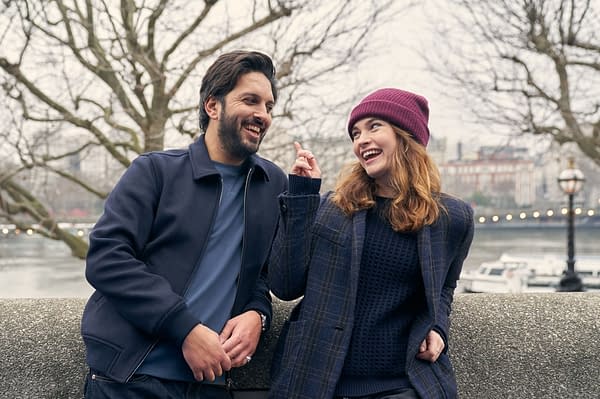
How 'What's Love Got to Do with It?' Became a Story of Empathy
Bleeding Cool: What intrigued you about 'What's Love Got to Do with It?'
Kapur: I liked the character Zoe, who is addicted to dating apps. What intrigued me was the idea of the search in the modern day, how do you find love, and how do you find intimacy? Intimacy and love go together. I've been fascinated by somebody who's addicted to dating apps and find out if they are looking to find intimacy in them. The film also reflected what we call "assisted" or "arranged" marriages; you have a complete contrast. The film's whole message at the end is "It doesn't matter which way you go; because love is always going to be a mystery."
If the mystery disappears, the yearning and belonging go too, and there's no love anywhere. What intrigued me about this project was I remember talking to Lily, and she asked, "How do you see my character?" I said, "I see it in a tumble dryer. You're in a dryer and trying to find yourself constantly in the chaos of modern-day life." I remember when I came to London when I was 18. It wasn't that we were not having a lot of relationships, but there were no dating apps. What also intrigued me is that everybody says "rom-com," and I'm saying, "In rom-com, there is always a dash to the train station or airport, and then everybody meets, and then it's happily ever after." This film is not saying "happily ever after." This film states at the end, "Now the relationship begins. Now the mystery begins. Another longing and yearning begin." It's almost saying part two after this film.
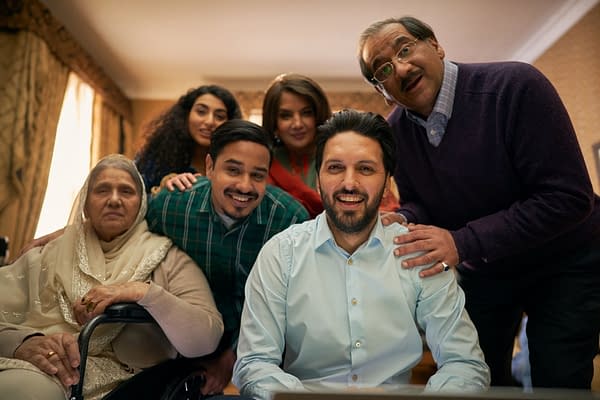
Can you speak of the cast together and what made them ideal for the roles?
Lily was obvious. The whole thing was, "Do we get her or not?" I was in the Himalayan Mountains near the Tibetan border, and she was in London. We started to WhatsApp each other and understood that all our conversations were about "What does intimacy mean? What does love mean?" Ultimately, she came to the project, which was excellent. It wasn't difficult.
Shabana Azmi was an obvious choice. I worked with her before. I started my career in a film with her, so I knew how amazing she is as an actor, so that wasn't a choice. Kazim, the male lead, I found [Shazad Latif] in an audition, and he was so still and against the stillness of knowing. He seemed in the whole film like he knew what he was doing and understood world life perfectly, and then it all went haywire. There's Zoe on the other side, who is a tumble dryer, chaotic, trying to understand and find herself, and the clash of these two. Suddenly, you realize everybody's still looking. Even Kaz is in the film because of his stillness, where he realizes life does not lie in being completely knowing; life lies in not knowing and then finding out.
What I found in Kaz was a perfect foil for Lily's character, Zoe. Emma [Thompson], we were lucky to get her. She's like this little firebrand. Emma did this brilliantly. She represented in a funny way the not knowing. She's not against immigration or people of color. She wants and admires them, but she does not know how to express them and constantly gets them wrong, and it's so English to do that. She carried it off so well, and you love her for it. You love her for her mistakes. You love her for her idea there's love, but there's a non-understanding. That was what's so beautiful about Emma's performance. We were so lucky we got her.
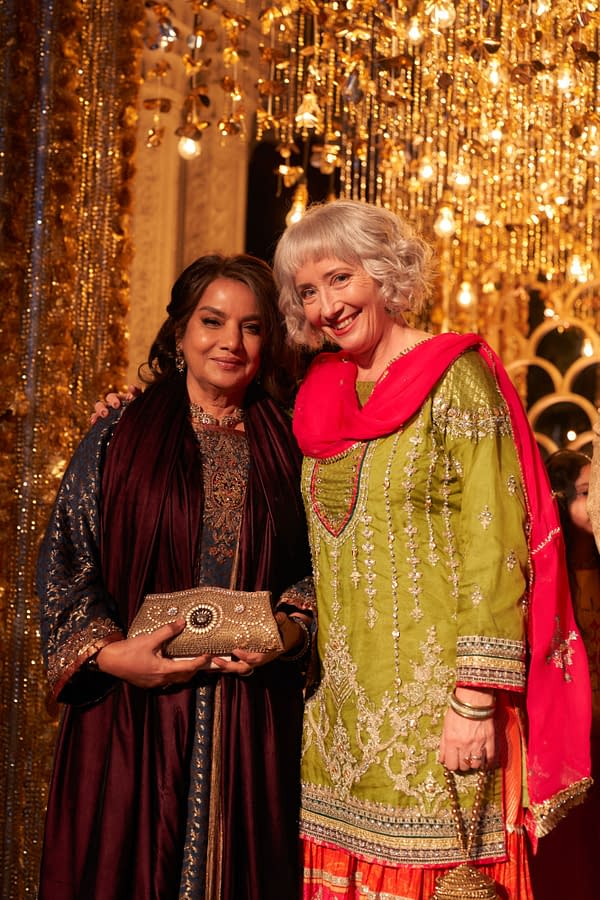
When you compare the way life was 20 years ago socially compared to now and the advent of dating apps, do you feel there's a social disconnect? How do you reflect that in your film?
The film has a lot of comedy, but it doesn't follow the normal pattern of the rom-com, but the end of it. This is not a happily-ever-after film. It's a deeper understanding of love at the end of it and what love is. Dating apps and social media are a progression of our lives. I didn't want to make any judgment. I can't. As a filmmaker, you don't make judgments. You offer insights through characters, and then there's a clashing of the insights of one character feels against the insight of another, where the two characters clash.
You try to understand because if you make judgments in a film, the audience doesn't move into your movie much. They say, "This is how it is." What I liked about when I was doing this film was "This is how it may be" or "This is how it may be." When you say, "This is how it may be," in a film, the audiences don't see themselves in the characters; whether they are Asian, Caucasian, Chinese, Italian, or Greek family, everybody sees themselves; they see their own family. That comes from making no judgment, allowing the space audiences to find themselves in every character.
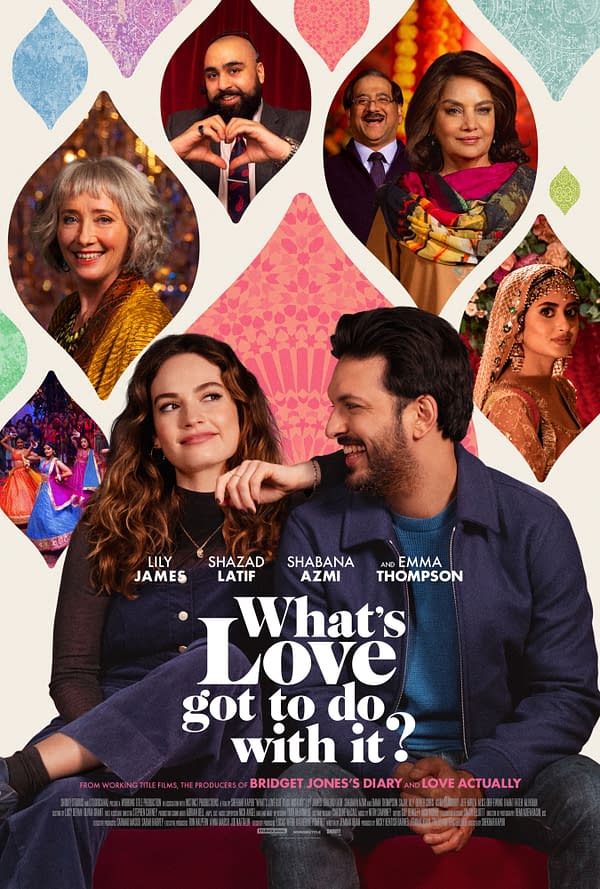
In keeping the story grounded, what was the most challenging aspect of the film?
I like there is not a suitable endpoint. In all my films, there's no suitable endpoint. There is an endpoint that suggests a new beginning; we are not making a moral judgment. Come to this film, all of you can judge and find something in this film that belongs to you, the audience. In the end, all we're saying is when two people find each other, and if they're going to create a relationship, a relationship has to be still; of love will always be a mystery. Love will always be yearning, longing, and then…
What's Love Got to Do with It?, which also stars Asim Chaudhry, Jeff Mirza, and Rahat Fateh Ali Khan, is currently in theaters.






